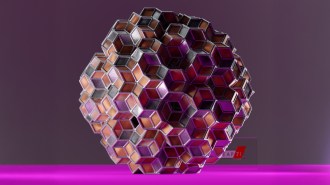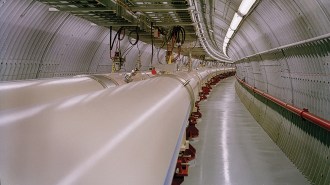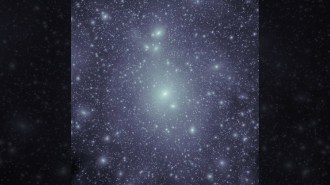Material’s magnetism tuned by temperature
Layered substance is candidate for future hard drives
DENVER — A small change in temperature can alter a newly fabricated material’s magnetic properties. It’s a unique feature that holds promise for building more dependable data storage devices. “No magnetic material known to man is known to do this,” said Ivan Schuller, a condensed matter physicist at the University of California, San Diego. He described the material March 3 at a meeting of the American Physical Society.
Schuller’s creation consists of nickel layered atop a vanadium oxide compound. Researchers had previously shown that the oxide is an electric insulator at low temperatures and a conductor at higher ones. But by adding nickel, the researchers found that the hybrid material’s magnetism also became linked to temperature. Schuller and his team manipulated the material’s coercivity, a measure of how difficult it is to switch the magnetic state, by adjusting the temperature over a 20-degree-Celsius range.
Schuller envisions this material as the foundation of next-generation magnetic hard drives. An ideal device would apply small magnetic fields to write data, and then when not in use, it would raise the requisite magnetic field strength to prevent accidental overwriting. A nickel-vanadium oxide device, combined with a modest heating system to control the temperature, could have those features.







